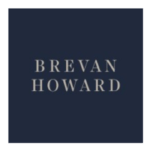Recruiters more often look to hire candidates with the right set of skills. In the short term, matching these skills with the job profile at hand may work, but in the long term, hiring people not just for their skills but also their strengths can prove to be the silver bullet.
There is a clear differentiation between strengths and skills.
Skills are what people learn, acquire and get better at over a period of time, with practice. On the other hand, strengths are abilities which come naturally to a person. They are the innate abilities of a human being.
For instance, a coder will have skills in programming languages, namely Java, C++, PHP and so on. However, his strengths would constitute his abilities and behaviours such as curiosity, patience, enthusiasm, trustworthiness or discipline.
“Skills are needed for doing work, otherwise work will not happen”
Rohit Suri, CHRO, South Asia, Dentsu International
Skye Lambley, CEO, Herd MSL, a marketing and brand solutions company in Australia, shared her insights in one of her guest articles on how the company moved to a strength-based hiring strategy, which yielded great results.
As a change in the hiring process, Herd MSL started building and categorising candidates based on ‘strength profiles’ — 34 individual strengths, which were analysed on the basis of four key areas, strategic thinking, relationship building, influencing and executing. Herd MSL made candidates fill an online survey to gain insights into their strengths. The Company places its talent in the organisation basis these insights.
Employee performance
Herd MSL has been following this approach for the last two years with great results. First, the Company has been able to recruit people from diverse backgrounds beyond the traditional talent pool and look for people with non-technical or core skill backgrounds.
Second, employees who work with the strengths that come naturally to them, perform better and are likely to stay engaged and stick on longer with the Company. Even a Gallup study found that employees who are able to use their innate abilities at work, are better performers and are more engaged.
Strength-based hiring has also helped Herd MSL build entrepreneurial skills and spirit in employees who come up with ways that help the agency grow further.
Talking to HR leaders, HRKatha found that moving entirely to a strength-based recruitment model may not work in every case. There will always be some roles in the company that require skill-based hiring, while some will require recruiters to hire people on the basis of their strengths.
Specialst vs generalist
“One approach does not fit all,” shares Rajeev Singh, CHRO, Solara Active Pharma Sciences. As per Singh, it will depend on the kind of a person or the profile being hired for. A company hiring for specialist roles, will give more emphasis to the skills the person brings to the table. Even people who operate in the gig economy are hired and given projects basis the skills they possess. Someone who is required to perform a generalist role may be hired for strengths, since that person will be expected to take up different responsibilities in the same domain, which requires acumen.
“More often, companies hire based on strengths when they hire for succession planning, where an individual is expected to play different roles within the organisation”
Rajeev Singh, CHRO, Solara Active Pharma Sciences
Internal mobility
“There are some companies that prefer their internal talent to move around. Such companies look at the strengths of their people, so that they can move from one role to the other. This not only requires learning ability but a drive to succeed laterally and vertically,” explains Singh.
Freshers vs experienced
Rohit Suri, CHRO, South Asia, Dentsu International, believes that while hiring freshers one looks to hire for strengths rather than skills. “Freshers do not really come with a lot of skill sets in their armoury,” points out Suri. After all, they are just starting out. Skills are acquired with experience and over a period of time. Freshers, however, come with their own unique strengths.
Suri cites an example from one of his previous organisations, where he hired someone from a top B-school for a digitial marketing role. The innate talent of the person, however, lay in filmmaking. Since the company was not into production, the person found no way to channelise his strength. A few months later, however, a requirement for such a skill came and the person was able to apply his skill and passion to that role. Simply put, he moved to a different role basis his natural strength, that is, the passion to make films.
Moreover, Singh mentions that strength-based hiring is apt for people with whom you want to engage for longer periods and for whom you have a plan. “More often, companies hire based on strengths when they hire for succession planning, where an individual is expected to play different roles within the organisation,” asserts Singh.
Yes, strength-based hiring has a lot of advantages, such as higher engagement levels and increased individual productivity, but one cannot ignore skills altogether. “Skills are needed for doing work, otherwise work will not happen,” says Suri. Therefore, a blend of both seems ideal.
A combination of skills-based and strength-based hiring can allow organisations to witness sustainable growth in talent.
Value our content... contribute towards our growth. Even a small contribution a month would be of great help for us.
Since eight years, we have been serving the industry through daily news and stories. Our content is free for all and we plan to keep it that way.
Support HRKatha. Pay Here (All it takes is a minute)



































